
Researchers from the Booth School of Business (University of Chicago) and Erasmus University Rotterdam have published new findings on the potential of artificial intelligence in screening outstanding candidates.
The results are not very pleasant for recruiters because they are real people. However, they provide business leaders with new data to consider when deciding whether or not to invest in AI.
In collaboration with a recruitment company, the research team randomly assigned 67,000 candidates to be interviewed by: an AI voice agent, a real human recruiter, or the candidate could choose between the two options. In all cases, a human remained the ultimate hiring decision-maker for entry-level customer service positions in the Philippines, based on the candidate's performance in the interview and a standardized test.
AI-led interviews generate 12% more job offers and have a 17% higher retention rate after at least the first month. The draft (currently open for public comment) shows that AI voice agents cover significantly more key topics than human-conducted interviews, providing recruiters with more relevant information to make informed decisions.
Part of the reason is that—as Brian Jabarian of Booth, the lead author, points out—AI speaks less and encourages candidates to speak more; this is a helpful reminder for anyone involved in interviewing candidates. Furthermore, when conducting thousands of interviews, human interviewers easily become fatigued (unlike AI) and sometimes forget to ask certain questions.
A small number of candidates are "allergic" to being interviewed by AI: approximately 5% of candidates scheduled with AI ended the call because they didn't want to talk to the bot. The voice agent also experienced technical glitches in 7% of cases. Candidates rated the AI voice as significantly "less natural."
However, among the group of candidates who voluntarily responded, 70% of those who experienced AI-led interviews reported a positive experience, compared to about half in the group interviewed by humans. This surprised many professional recruiters, as most of them expected AI to perform worse.
Jabarian said he was also “quite surprised” that the AI voice agent was so good at collecting data through social interaction – a skill often considered a strength unique to humans.
Another noteworthy finding: nearly four-fifths of the candidates, when selected, chose to interview with AI. This could simply be due to convenience – they could schedule it at any time. The research team also found that the surveyed candidates had a fairly positive view of AI, which may have contributed to many people proactively choosing AI.
One of the most interesting aspects is the research's implication regarding the cost-effectiveness of replacing professional recruiters with AI bots.
While bots perform complex and important tasks quite well, this technology doesn't come with a guaranteed return on investment. Candidates in the study could schedule interviews slightly faster with the AI agent, but that efficiency advantage was negated by the fact that recruiters spent twice as long as the average time reviewing the results of AI-generated interviews.
This finding aligns with a recent, high-profile MIT study that concluded 95% of enterprise AI trials failed to yield measurable benefits, despite billions of dollars invested.
Whether investing in AI voice agents for interviews is truly cost-effective largely depends on the context. It may depend on the position being filled, and whether the AI is as proficient as it is in interviewing for "white-collar" positions, rather than just repetitive tasks like those in this study.
This can also depend on factors such as the volume of recruitment and the salaries the company pays to recruiters. Smaller companies in areas with relatively low recruitment salaries may not break even, especially when considering upfront costs to suppliers. Conversely, larger organizations handling a large number of applicants in areas with high recruitment salaries may save significantly.
The fact that AI interview tools appear to lead to connecting higher-quality candidates could also mean companies will save costs because they won't have to replace employees as often – a huge benefit in industries like call centers, where employee turnover rates are already very high.
This research could mark the beginning of a clearer phase in how companies approach their AI investments.
(Source: Bloomberg)
Source: https://vietnamnet.vn/khi-tri-tue-nhan-tao-buoc-vao-phong-phong-van-tuyen-dung-2440447.html











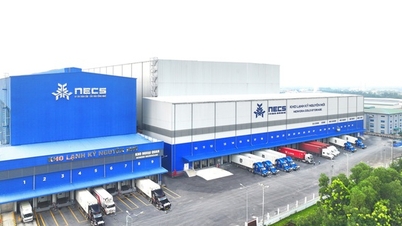


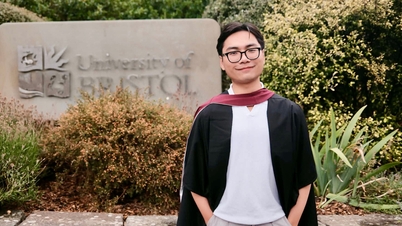

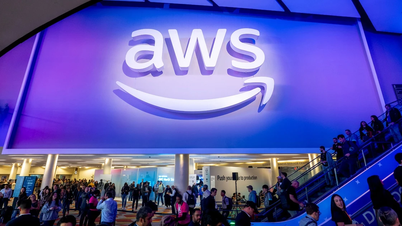




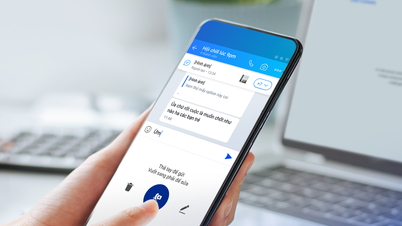


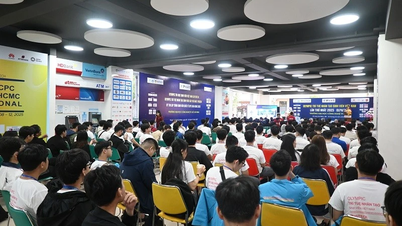










![[Image] Close-up of the newly discovered "sacred road" at My Son Sanctuary](/_next/image?url=https%3A%2F%2Fvphoto.vietnam.vn%2Fthumb%2F1200x675%2Fvietnam%2Fresource%2FIMAGE%2F2025%2F12%2F13%2F1765587881240_ndo_br_ms5-jpg.webp&w=3840&q=75)


















































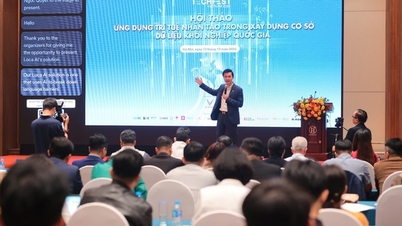

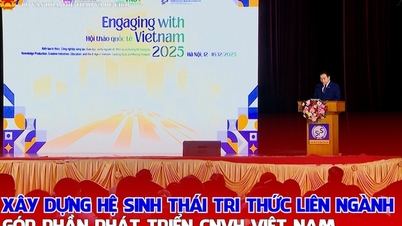

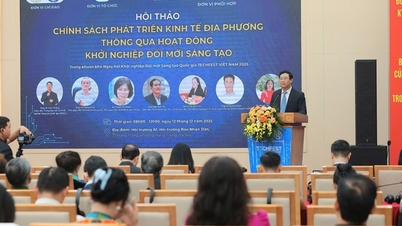























Comment (0)